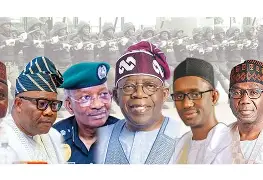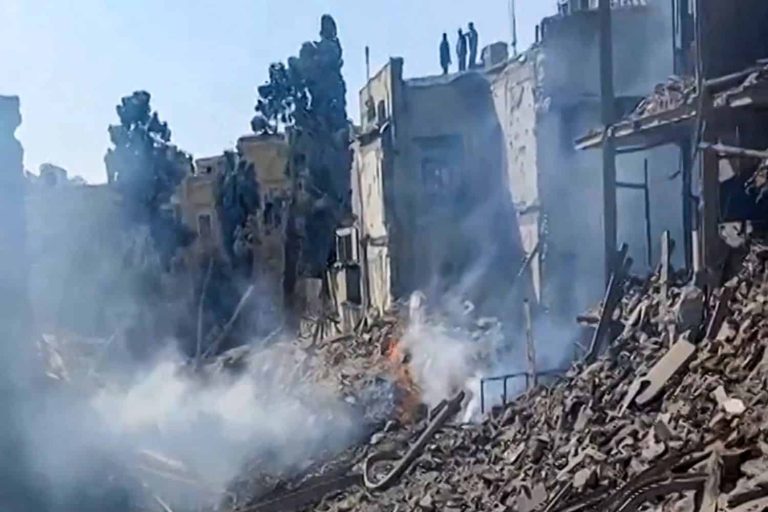
The Federal Government has made a significant shift on the controversial issue of state police yesterday, after President Bola Tinubu declared the possibility of working “with the National Assembly to design a framework that guarantees local ownership while ensuring political neutrality.”
Tinubu made the comment at the State House while receiving members of the North-East Governors’ Forum led by Borno State Governor, Babagana Zulum.
The President, who commended the resilience and collaboration of governors in the North-East, noted that despite daunting security and developmental challenges, the region has made remarkable progress in stabilisation, resettlement, and social services.
“I have looked more carefully at the security situation. I see the efforts of civilian JTFs and communities. This has again provoked my thinking on state police. We can work with the National Assembly to design a framework that guarantees local ownership while ensuring political neutrality,” the President declared.
Tinubu’s bold declaration signals the end of buck-passing after years of hesitation on the issue of insecurity, during which criminal elements and non-state actors took control of ungoverned spaces across the country, turning them into havens for armed insurrection against Nigeria.
Shortly after assuming office, former President Muhammadu Buhari declared his administration’s intention to recruit approximately 10,000 police officers, emphasising that the nation’s constitution stipulates the security of lives and property as a primary function of the government.
However, the proposal was never implemented, and insecurity continued to weigh heavily on Nigerians, particularly with the rise in banditry, years of Boko Haram insurgency in the North-East, as well as kidnapping for ransom and recurring clashes between farmers and cattle herders. For many, it appeared the country was sliding towards state failure.
Attempts by some influential figures to rationalise the menace either as a tool of political bargaining or as an extension of the North-South socio-economic competition left successive administrations caught in the middle, failing to address the challenge squarely as an existential problem.
Stripped of religious and political undertones, the situation only worsened. The security of lives and property deteriorated to the extent that Nigerians from all walks of life began to question when and where the rain of insurgency actually began to beat the nation.\ Calls for state police, regarded as the proper step under a democracy, had long been coloured by regional disputation. But with the current disposition of the President, alongside consensus support from the National Economic Council, the Nigeria Governors’ Forum, the Northern Elders Forum (NEF), and other strategic stakeholders, it appears that something serious is about to happen.
TINUBU’s comments came as Governor Dauda Lawal of Zamfara State declared that banditry would become a thing of the past in the state if he had direct control over security agencies.



